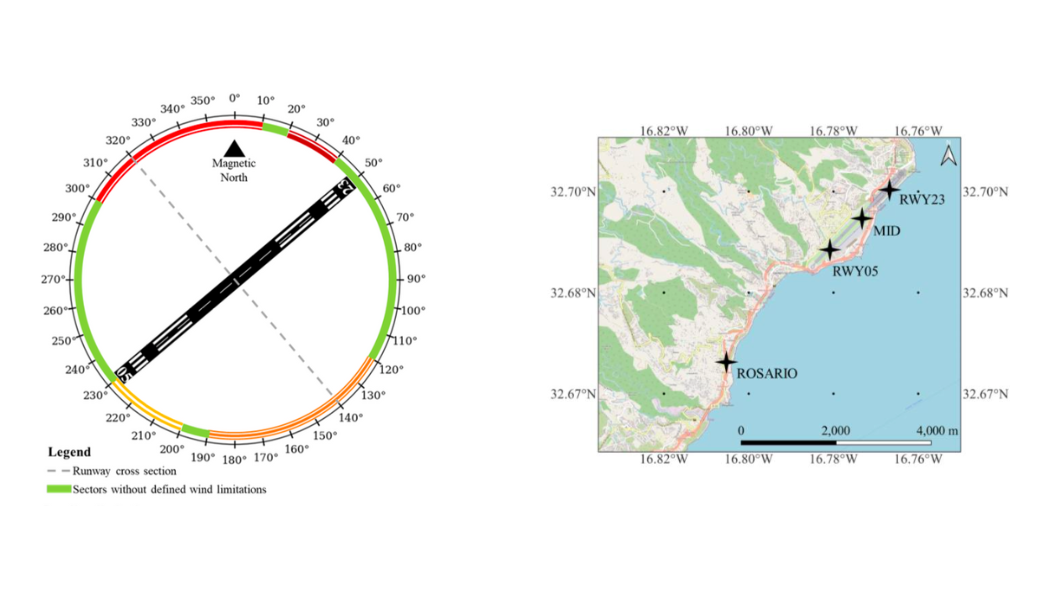Wind Limitations at Madeira International Airport: A Deep Learning Prediction Approach

Abstract Permalink
The unique geographical and topographical features of Madeira International Airport in Portugal significantly influence flight safety, primarily due to variable wind patterns. In this study, a machine learning approach is developed to predict runway operational statuses at Madeira International Airport, focusing on addressing wind-related challenges. To tackle this issue, a Deep Learning model is utilized. This model undergoes a particle swarm optimization process, resulting in one optimized model for each timestep, to provide minute-resolution predictions within a 20-minute timeframe. The training, validation, and testing phases for the optimized models were conducted using high-frequency wind data from Madeira International Airport. The main objective is to accurately predict the runway operational statuses, specifically whether the airport is open or closed for landing, take-off, or both. The models exhibit high performance, particularly in identifying operational conditions, reaching 99.93% precision, and a top accuracy of 94.35% predicting all runway status, underscoring their potential to enhance decision-making processes and operational efficiency under challenging weather conditions.
More information Permalink
- Authors
- Décio Alves; Diogo Freitas; Fábio Mendonça; Sheikh Mostafa; Fernando Morgado-Dias
- Date
- 2024
- Journal
- IEEE Access
- Publisher
- IEEE
- Source
- Link
Citation Permalink
@article{decio2024,
author = {Alves, Décio and Freitas, Diogo and Mendonça, Fábio and Mostafa, Sheikh and Morgado-Dias, Fernando},
doi = {10.1109/ACCESS.2024.3394447},
journal = {IEEE Access},
month = {5},
pages = {61211--61220},
title = {Wind Limitations at Madeira International Airport: A Deep Learning Prediction Approach},
volume = {12},
year = {2024}
}
